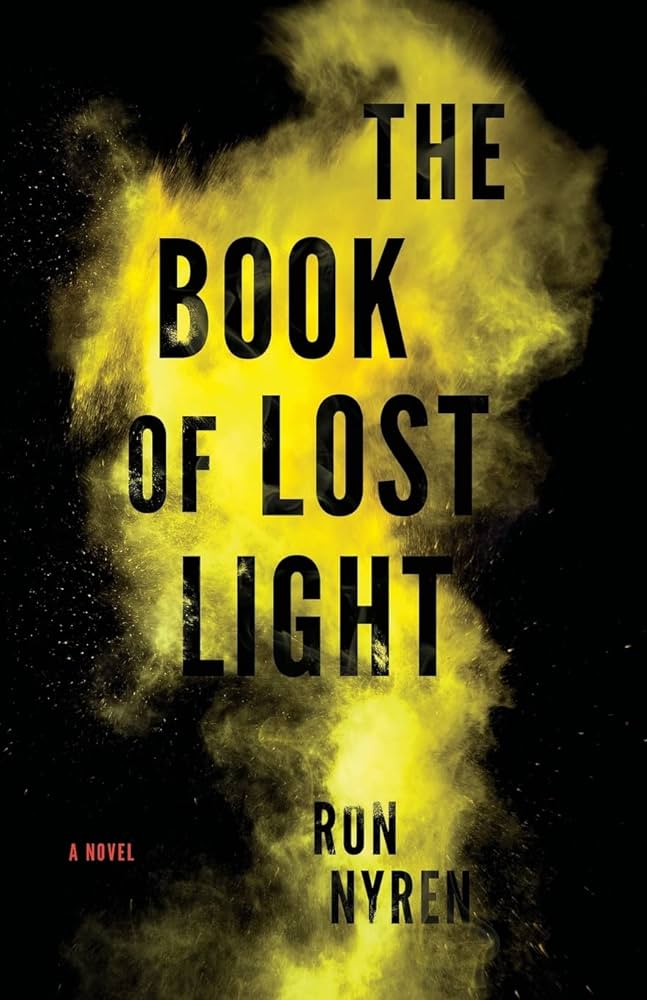When the ominous appears in fiction, it increases anticipation and deepens empathy. As readers watch a character struggle with a feeling of unease caused by people or events, it offers them the pleasure of intimacy. Like the character, they have, in their own lives, questioned if something that urges wariness is real or imagined. As the matter is resolved for the character, the reader will feel catharsis.
Sometimes readers meet unease in the opening chapters, and sometimes it appears throughout, never lessening until a final, breathtaking finish as in the three stories on my list, ‘Audition,” “Solo Works for Piano,” and “Bartow Station.” But regardless of how often or where unease descends, it’s a powerful magnet for readers who come to fiction not only for the enjoyment a well-made story or novel provides, but to find company in the loneliness caused by a troubling darkness in their own lives.
In my novel, The Causative Factor, the ominous makes its appearance in the first chapters. Rachel and Rubiat meet at art school and become inseparable, both surprised by their intense mutual passion. That passion is soon tested, however, when Rubiat gives in to a reckless, self-destructive impulse that sets him adrift and unaccounted for. Rachel manages to resume her life and her studies, but she’s uncertain whether he’s alive or dead. As she looks back at that day in the park when Rubiat disappeared, she feels deep disquiet and with hindsight, everything seems ominous.
That feeling of foreboding is different from heart-pounding fright; it’s more subtle, softly buzzing underneath action and dialogue, always changing but never diminishing entirely. Its lack of visibility is what makes it potent. Readers have only clues and hints, and because it’s secretive and mostly hidden, shame is often a part of it. In this way, the eight titles below will deliver foreboding, but not fear.
Take What You Need by Idra Novey
In this novel about caretaking relationships and the making of art, the source of unease is the fledgling friendship between Jean, a retired office worker who spends her time welding metal sculptures in her living room, and Elliot, the 19-year-old unemployed kid next door who helps her with the physically demanding tasks her art requires. Elliot is always on the verge of sliding back into his old life with a shiftless crowd of users and trouble-makers while Jean negotiates her own risky desires, sometimes managing to alienate her new friend and sometimes managing to give him exactly what he needs, but always walking a tightrope through his unpredictable moods.
The Family Chao by Lan Samantha Chang
Most of the action in this novel takes place in a large and successful Chinese restaurant in a small midwestern city where Leo Chao, owner and employer, maintains a tense environment, verbally abusing family and staff. The ominous is evoked not only by this tyrannical father and employer but also, and more dramatically, by an outdated freezer room in the basement of the restaurant. Bribes have allowed it to pass inspection, and the reader learns in the beginning of the novel that its major defect is a door that tends to lock the unsuspecting inside. That is why a key is always kept on an interior shelf. When tensions escalate and emotions run high, the reader suspects the freezer will become a weapon.
On Division by Goldie Goldbloom
In the way that Hitchcock made those gentle, feathered creatures that sing to us from tree tops ominous, Goldbloom does the same for a married woman’s pregnancy. Surie is a fifty-seven-year-old Chassidic mother and grandmother when she discovers she’s pregnant. In her religious tradition, it is shameful for a couple their age to have intercourse, so Surie, who is a large woman already, hides the pregnancy under roomy dresses and tells no one, not even the husband she loves. But as the clock ticks and the fetus develops, Surie conflates the loss of her gay son who left their community and committed suicide, with the baby growing inside her. Soon the pregnancy will be visible to all and though she yearns to share her feelings, her husband refuses any mention of their lost child.

The Book of Lost Light by Ron Nyren
This is a novel about a son’s struggle to gain independence from his widowed father. Arthur Kylander is a photographer and like his mentor, Eadweard Muybridge, the photographer famous for revealing the secrets of animals in motion, he has a similar project: to reveal the movement of time. The narrator tells us how it works in the novel’s first sentence: “From the time I was three months old until I was nearly fifteen, my father photographed me every afternoon at precisely three o’clock.” It is an unusual kind of possessiveness and as the narrator ages, the routine becomes more and more troubling. But Joseph can’t stop it, because mixed in with his desire to escape, there is also a son’s unwillingness to destroy his father’s lifelong project.
The Tenderest of Strings by Steven Schwartz
Schwartz’s novel centers on a long married, middle-aged couple, Reuben and Ardith. When Ardith has an affair with the town’s beloved doctor who is also a family friend, the stability of their lives is threatened. In this novel, the ominous makes its appearance in the peacefulness of the doctor’s finished and orderly house. Compared to the house Ardith lives in with Ruben and their two sons, its lack of chaos is seductive. Arden and Ruben are in the midst of a renovation they will never have the money or time to complete, so tools, stacks of wood, and ladders furnish their living spaces. Could the doctor’s house alone threaten the love Ardith has for her husband and family?
“Audition” in American Short Fiction 23.72 by Denne Michele Norris
I read “Audition” in 2020 and it has stayed with me. Here the ominous saturates the point of view. The reader is placed in the mind of the Reverend Doctor Preston McKinsey, a widowed man who lives with his teenage son, Davis, a boy he no longer can abide after the Reverend finds him having sex with another boy in their pergola. He tries to throw his son out of the house, but Davis refuses to leave and under the shadow of the Reverend’s biblically inspired judgment, they continue to coexist in a state of mutual disrespect. The tension grows until they arrive in New York for Davis’s audition at a prestigious music school and it doesn’t break until an event on a subway platform changes everything.
“Bartow Station” in Witness by Jamel Brinkley
“Bartow Station” is from Witness, the most recent collection of short fiction by Jamel Brinkley. We meet the narrator in the locker room on his first day driving for U.P.S.. As he gets ready, a fellow driver tells him he should get himself better shoes or his feet will suffer. But the shoes he wears have a sentimental value that seems to be wrapped up with the narrator’s deceased cousin, Troy. The reader understands, from the first time the name is dropped, that Troy haunts everything the narrator does and as our curiosity about what happened builds, so does our foreboding.
“Solo Works for Piano” from Skinship by Yoon Choi
“Solo Works for Piano” is one of eight stories about Korean Americans living in the United States. Albert Uhm seemed to have a brilliant musical career before him, yet rather than traveling the world as a great classical pianist, he has ended up teaching at Hofstra University on Long Island. Sasha, another former student from Albert’s class, has given piano up entirely to devote herself to the project of raising her daughter, a young but entirely undisciplined musical prodigy. This wild child not only has disrupted Sasha’s life, but as soon as she sits down at Albert’s piano, we realize that the delicate equilibriums of Arthur’s carefully maintained existence will collapse in the tornado of this mother and child.
Take a break from the news
We publish your favorite authors—even the ones you haven’t read yet. Get new fiction, essays, and poetry delivered to your inbox.
YOUR INBOX IS LIT
Enjoy strange, diverting work from The Commuter on Mondays, absorbing fiction from Recommended Reading on Wednesdays, and a roundup of our best work of the week on Fridays. Personalize your subscription preferences here.


